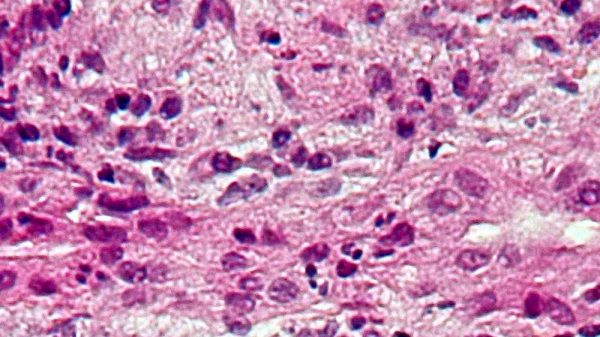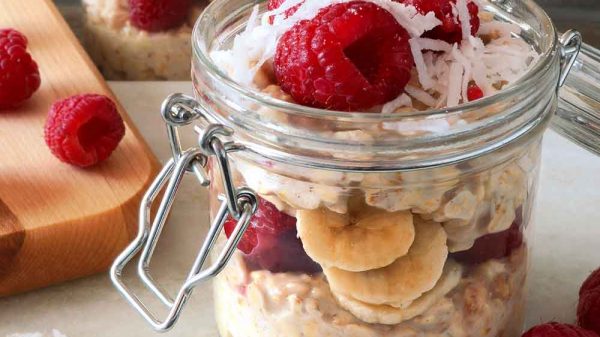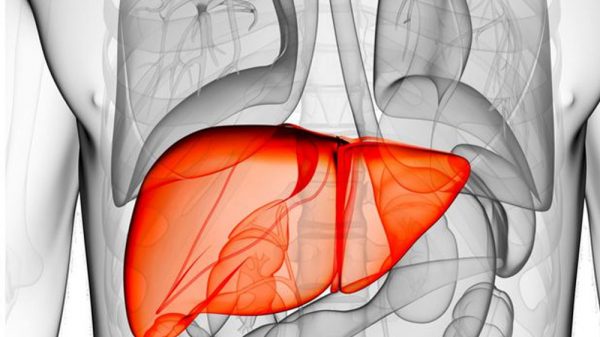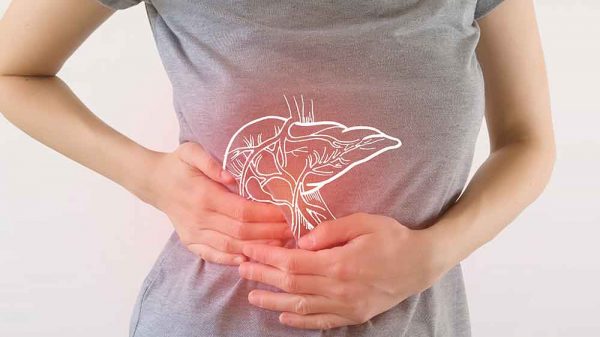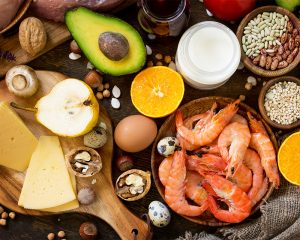You might have heard about the importance of protein from health and fitness campaigns emphasizing the importance of protein. Protein is a macronutrient that supplies the body with amino acids, which are the building blocks of all proteins. Low protein symptoms can impact all organ systems, including the liver, as well as your overall health and wellness. Read on to find out what you need to know about protein deficiency symptoms, the importance of protein for liver function, and how to make sure you’re getting the protein your body needs.
Why Do We Need Protein?
Protein offers vital nutrients that the body needs to thrive. Specifically, protein is made up of smaller units called amino acids. There are different categories of amino acids. Nonessential amino acids can be synthesized by the body, while essential amino acids must be obtained from dietary sources on a daily basis. Conditionally essential amino acids can be manufactured by the body when needed, such as during periods of stress or illness.
Amino acids are critical for countless biological mechanisms. The body uses amino acids to manufacture antibodies in the immune system that are responsible for fighting off infections. Amino acids are also important building blocks of neurotransmitters such as serotonin and norepinephrine, helping to regulate mood and physiological responses. Amino acids are also critical for synthesizing enzymes, muscle tissue, and connective tissue, like collagen.
Moreover, getting enough high-protein foods each day helps keep blood sugar levels in check and keeps us fuller for longer. In turn, protein helps encourage a healthy metabolism and weight loss.
A lack of protein and amino acids can cause serious problems across all organ systems.
The Importance of Protein for Liver Health
Let’s explore the particular role that protein plays in supporting liver health.
Essential Amino Acids for Fatty Liver Disease
Research reveals how essential amino acids can have a therapeutic and protective effect on liver health, with particular implications for individuals with fatty liver disease (the most common liver disease in the United States).
In a study published in Nutrition, researchers investigated the impact of essential amino acid supplementation on elderly individuals. (1) Results revealed that in comparison to the control trial, individuals showed a significant decrease in liver fat levels, cholesterol levels, and plasma triglycerides. Interestingly, these changes were observed in the absence of other diet and lifestyle changes. (1)
Additionally, research shows that essential amino acids like histidine and leucine have protective effects on liver tissue by reducing inflammation and fat accumulation. (2)
Essential Amino Acids for Other Liver Diseases
The benefits of essential amino acids for liver health seem to extend beyond fatty liver disease. In fact, research reveals that certain essential amino acids called branched-chain amino acids may help stop the growth of liver cancer. (3) The branched-chain amino acids are isoleucine, leucine, and valine.
Moreover, individuals with advanced liver diseases such as liver cirrhosis benefit from ensuring that they obtain optimal ratios of essential amino acids. Muscle wasting is a serious symptom of advanced liver disease and is associated with poorer outcomes. Getting plenty of protein and obtaining optimal ratios of essential amino acids on a daily basis may help encourage muscle synthesis and combat symptoms of advanced liver disease.
In summary, science shows that essential amino acids play a critical role in liver health and may have therapeutic uses for individuals suffering from liver disease.
What Happens When We Have Low Protein Intake?
Severe protein deficiency, or hypoproteinemia, is a serious nutrient deficiency that impacts health and biological functioning. Though rare in the developed world, the developing world is impacted by food shortage and subsequent malnutrition and protein deficiency.
Low protein intake may cause protein calorie malnutrition. Also referred to as protein energy malnutrition, this condition describes insufficient protein intake or protein deficiency, and it can be an acute or chronic condition. Marasmus and kwashiorkor are two types of acute protein calorie malnutrition. In some specific cases that show elements of both, doctors may diagnose a patient with marasmic kwashiorkor.
Marasmus develops from an extreme deficiency in energy intake and protein. Nutritional marasmus leads to a severe loss of muscle and fat. Individuals develop kwashiorkor as a result of consuming a restrictive diet based mainly on carbohydrates. Kwashiorkor presents with specific symptoms. (4) These symptoms of protein deficiency include:
- Under pigmented hair
- Thinning hair
- Hair loss
- Swelling and fluid retention in limbs (edema)
- Stunted growth
- Behavioral and mental changes
- Skin irritation, rashes, flaky skin, and peeling
- Swollen abdomen
- Enlarged liver
- Muscle wasting or muscle loss
- Abnormal blood tests revealing anemia, low globulin, or low albumin
If your intake of protein is too low but not low enough to be diagnosed with kwashiorkor or marasmus, you may still experience symptoms and health problems. Getting insufficient amounts of protein and essential amino acids may cause you to experience:
- Brain fog
- Mood shifts
- Tiredness
- Weakness
- Slow recovery after workouts
- Difficulty building muscle mass
- Injuries that heal slowly
- Getting sick frequently
- Brittle nails
Are You Getting Enough Protein? What You Should Know
Protein is one of the main macronutrients that we obtain from food. However, not all dietary sources of protein are the same, and not all sources of protein offer optimal ratios of essential amino acids.
Recommended Protein Intake
In general, the average adult needs about 0.8 grams of protein for each kilogram of body weight, which converts to about 0.36 grams of protein per pound of body weight. This means that if you weigh 150 pounds, you need approximately 54 grams of protein on a daily basis.
However, protein intake extends beyond quantity. The quality of the protein you consume is even more important than the amount of protein you consume.
The Protein Digestibility-Corrected Amino Acid Score
The protein digestibility-corrected amino acid score (PDCAAS) assesses the completeness of a food’s essential amino acid composition and evaluates how well a protein source can be utilized by humans. Scoring typically ranges from zero (worst protein score) to 1 or 100% (best protein score). (5)
The importance of evaluating protein quality over the amount of protein consumed is demonstrated by science. For example, in a study conducted at the Friedman School of Nutrition Science and Policy at Tufts University in Boston, Massachusetts, researchers assessed data from 116 countries evaluating stunted growth, protein malnutrition, protein consumption, and adjusted protein quality with PDCAAS. (6) Results revealed that protein quality is a better predictor of risk for protein malnutrition than protein quantity. (6)
The Scoop on Animal Protein vs. Plant Protein
High-quality sources of dietary protein offer optimal ratios of essential amino acids. All animal proteins have a PDCAAS of 1 or 100%. Lean meat and dairy products like chicken breast, turkey breast, low-fat cheese, and nonfat yogurt are excellent sources of high-quality protein. Fish also offers optimal ratios of essential amino acids as well as anti-inflammatory omega-3 fatty acids.
Essential amino acids can also be obtained from plant proteins. However, unlike animal proteins, vegetable proteins do not offer optimal ratios of essential amino acids in a single source and the PDCAAS of plant proteins are below 1, or less than 100%. As a result, it’s important to combine vegetable proteins throughout the day, especially if you’re following a primarily plant-based diet. Excellent sources of plant proteins to incorporate into your diet include whole grains, nuts, seeds, beans, and tofu.
Supplementing Is Helpful
Supplementation is a very effective method to ensure that you’re getting optimal ratios of essential amino acids on a daily basis. A high-quality essential amino acid powder is a great product to incorporate into your routine on a daily basis. Essential amino acid powder can be mixed into your favorite beverages, such as water, coffee, and smoothies. Other protein powders containing whey protein or casein protein can also be useful for ensuring that you’re getting the protein you need.
Meal Ideas and Tips for Getting Optimal Ratios of Essential Amino Acids
Inadequate protein intake has serious repercussions for your health. So how can you make sure you’re getting the protein you need? Here are some helpful tips and meal ideas.
1. Having High Protein Meal Ideas on Hand
Keep high protein meal ideas on hand to help ensure that you’re preparing protein-rich meals that are good for your liver.
Veggie Chili with Beans and Tofu
Try this hearty vegetarian version of chili that’s also packed with a variety of plant proteins. Create a ground meat replacement using chopped walnuts, mushrooms, and crumbled tofu. Saute the mixture with olive oil, onions, bell peppers, and garlic. Add black beans, kidney beans, lentils, cubed sweet potato, vegetable broth, and diced tomatoes. Season liberally with chipotle chili powder, cumin, garlic powder, salt, pepper, and smoked paprika. Simmer the chili until the sweet potatoes and lentils are tender. You can add chopped kale and spinach to your chili to increase the vegetable content. Serve over brown rice or quinoa for extra protein and fiber.
Greek Salad with Baked Salmon
This low-carb, high protein salad is a perfect lunch or dinner option. First, chop up greens into bite-size pieces. Romaine lettuce, kale, and arugula are delicious options. Add sliced red onions, bell peppers, cucumbers, and tomato. Toss with an herb dressing, and top with a few crumbles of low-fat feta cheese and baked salmon.
Egg White Omelet with Veggies
Egg whites are rich in essential amino acids, while also low in fat and calories. In a pan, saute chopped vegetables like mushrooms, kale, bell peppers, and onions. Pour egg whites into a pan and top with the sauteed vegetables and a sprinkle of low-fat mozzarella cheese. When the omelet is cooked, fold it in half. Serve with salsa, a dash of hot sauce, chopped cilantro, and sliced avocado, for a serving of healthy fats.
Greek Yogurt Parfait
This simple recipe offers optimal ratios of essential amino acids as well as calcium, antioxidants, vitamins, and minerals. Did you know that one serving of Greek yogurt offers 15 grams of protein? To prepare this meal, layer nonfat Greek yogurt with berries and crushed walnuts for a tasty, protein-rich breakfast. Low-fat cottage cheese is also a healthy dairy product that can be used instead of Greek yogurt.
Smoothies and Shakes
Smoothies and shakes are quick and easy vehicles for getting the protein your body needs. Try whipping up a shake with frozen bananas, frozen mangos, soymilk, and essential amino acid powder.
Or try a hearty, calorie-dense shake by blending up frozen bananas, peanut butter, ground flaxseeds, whey protein, and soymilk.
2. Keeping the Pantry Stocked with High-Protein Snacks
Busy schedules can sometimes make it difficult to eat meals on time. Supplement your meal with protein-rich snacks that are easy to eat on the go, like low-sugar protein bars, trail mix, and apples with peanut butter.
3. Meal Planning and Prepping
Meal planning and meal prepping can help eliminate a lot of stress and energy when it comes to preparing dinner. Plus, meal prepping makes it easier to ensure that the meals you’re creating offer high-quality protein with optimal ratios of essential amino acids. Choose protein-rich meals that you can easily prepare in bulk and store in the refrigerator or freezer, and reheat at mealtime.
Things to Keep in Mind
If you’re not sure if your diet includes enough protein, it may be a good idea to talk to your doctor and a registered dietitian or nutritionist. Seeking medical advice and nutritional guidance from professionals can help you ensure that your protein intake is right for your specific activity levels, age, and medical conditions.
Moreover, some people may experience low protein symptoms due to a health issue that impacts how well the body is able to break down and absorb protein. Your physician will be able to determine if you have a digestive issue or other disorder that is impacting protein breakdown.
Keep in mind that some people may need to follow low protein diets due to certain health conditions. For example, an individual with chronic kidney disease may be advised to avoid high amounts of dietary protein, since excess protein can place extra stress on the kidneys.
Conclusion: Low Protein Symptoms and How Low Protein Affects Liver Health
Protein is absolutely vital to health and well-being. The body requires amino acids for nearly all biological mechanisms, from immune system health to liver function. Low protein symptoms include exhaustion, weakness, brittle nails, thinning hair, and brain fog. Eating enough high-quality protein with a high PDCAAS score, or combining lots of vegetable proteins, can help you obtain the essential amino acids that the body needs for optimal function.
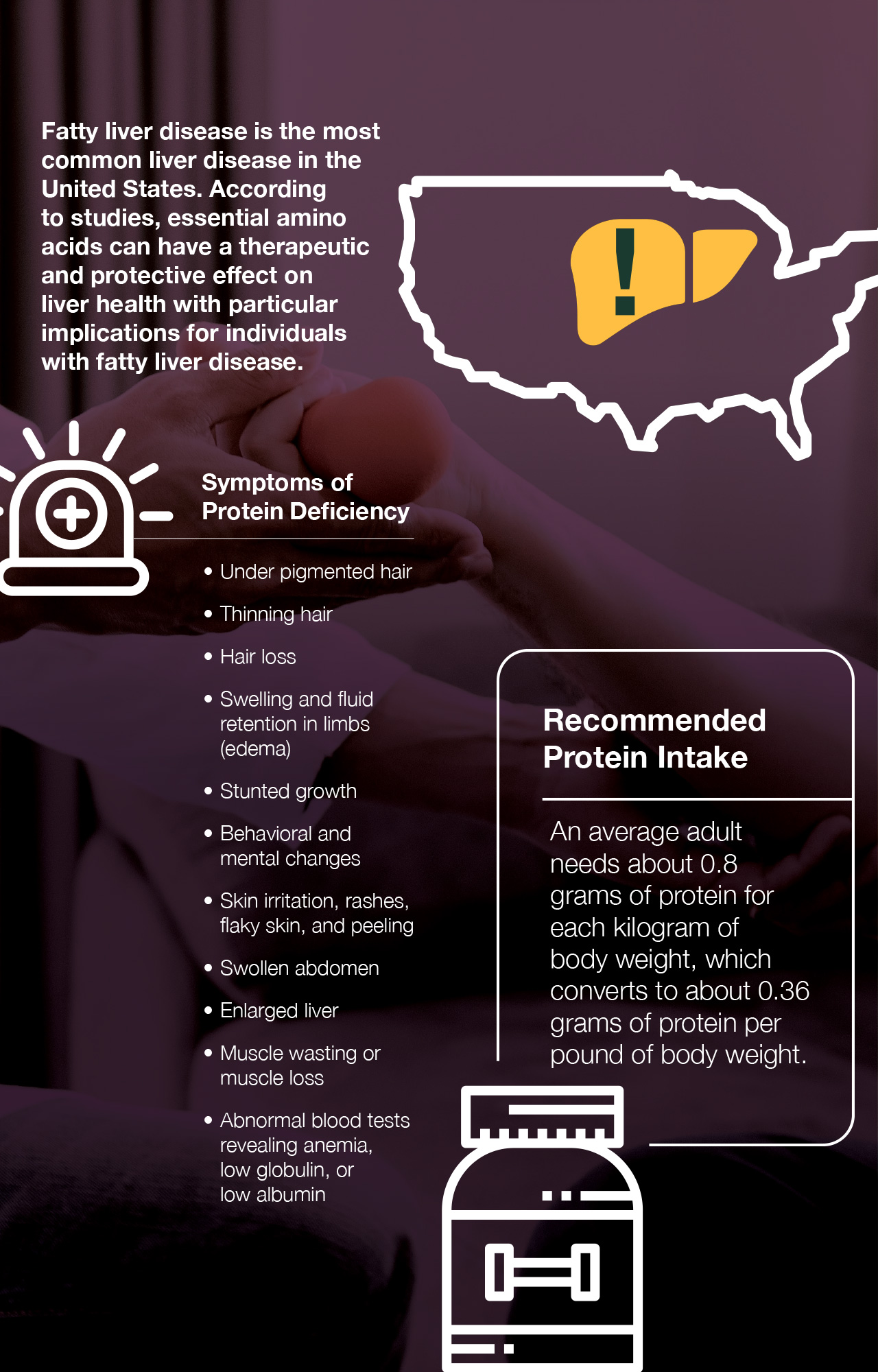
References:
(1) https://www.ncbi.nlm.nih.gov/pmc/articles/PMC2696073/
(2) https://www.ncbi.nlm.nih.gov/pmc/articles/PMC6619856/
(3) https://www.ncbi.nlm.nih.gov/pmc/articles/PMC6088198/
(4) https://www.ncbi.nlm.nih.gov/books/NBK507876/
